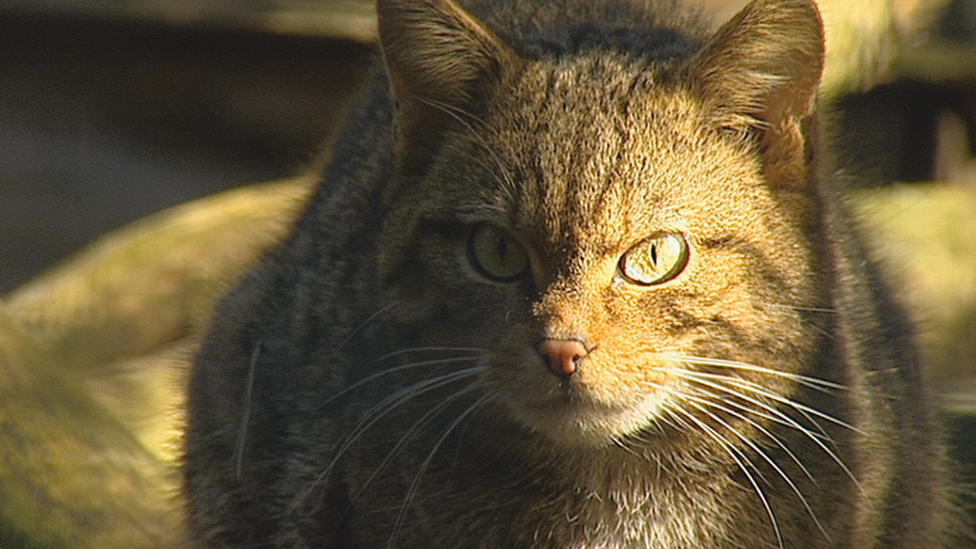Shepreth Scottish wildcat kittens part of project to save species
- Published
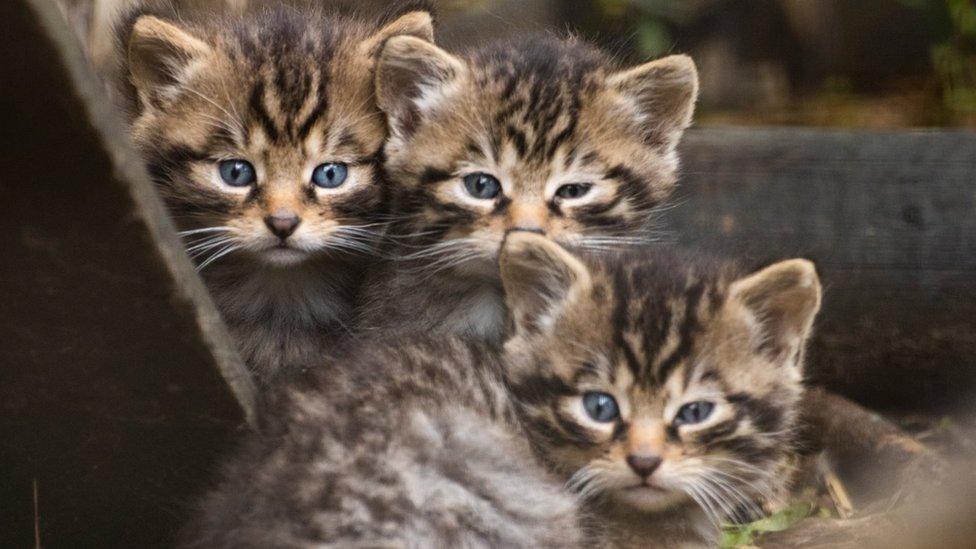
The newborns only recently ventured out of their den at the Cambridgeshire wildlife park
Four Scottish wildcat kittens born in Cambridgeshire could help save the species as they are destined to be released into the wild in the Cairngorms.
The kittens were born about a month ago at Shepreth Wildlife Park.
When they are old enough, they could be released at undisclosed locations in the Cairngorms National Park.
They are part of the Saving Wildcats project which was granted a licence to release captive-bred wildcats.
Eventually, as many as 20 could be released annually in what is the UK's largest national park, which covers 1,748 sq miles between Aberdeen and Loch Ness.
There are wildcats in the wild in the Cairngorms, but the population is under threat.
The cats, sometimes known as Highland tigers, are on the brink of extinction, according to research.
Breeding with feral domestic cats, disease and habitat loss have been blamed for reducing numbers.
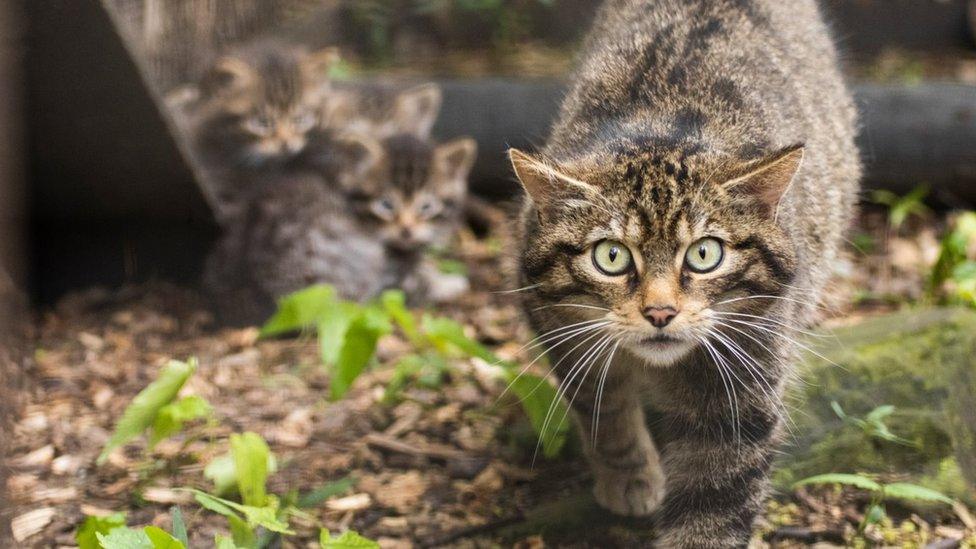
The new kittens' mother, Canna, arrived at the Cambridgeshire park about a year ago
Saving Wildcats, which involves a number of organisations, has been breeding the animals at Royal Zoological Society of Scotland's Highland Wildlife Park at Kincraig, near Aviemore.
They are expected are to be released in an area covering 232 sq miles (600 sq km) that is involved in a landscape conservation project called Cairngorms Connect.
The Cambridgeshire kittens - part of this project - were born to mum Canna, a fairly recent arrival at Shepreth Wildlife Park, and dad Raymond, a longer-term resident.
Shepreth's director, Rebecca Willers, said the newborns were "just like any other playful kittens, but we're having zero contact with them because we want them to remain wild".
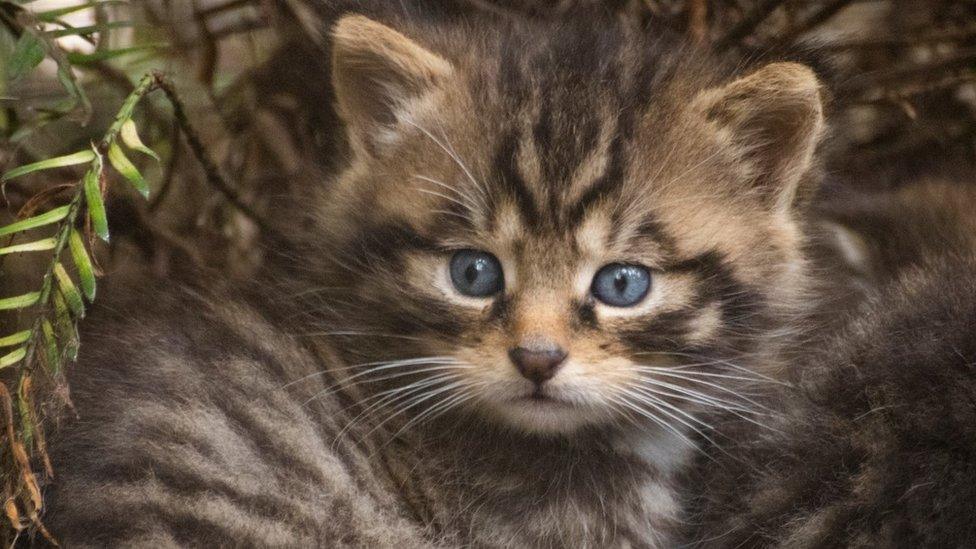
One of the new kittens from the litter that will be part of the project
The kittens will be vaccinated, sexed and microchipped and will stay with their parents until they reach sexual maturity.

Find BBC News: East of England on Facebook, external, Instagram, external and Twitter, external. If you have a story suggestion email eastofenglandnews@bbc.co.uk, external
Related topics
- Published24 March 2023
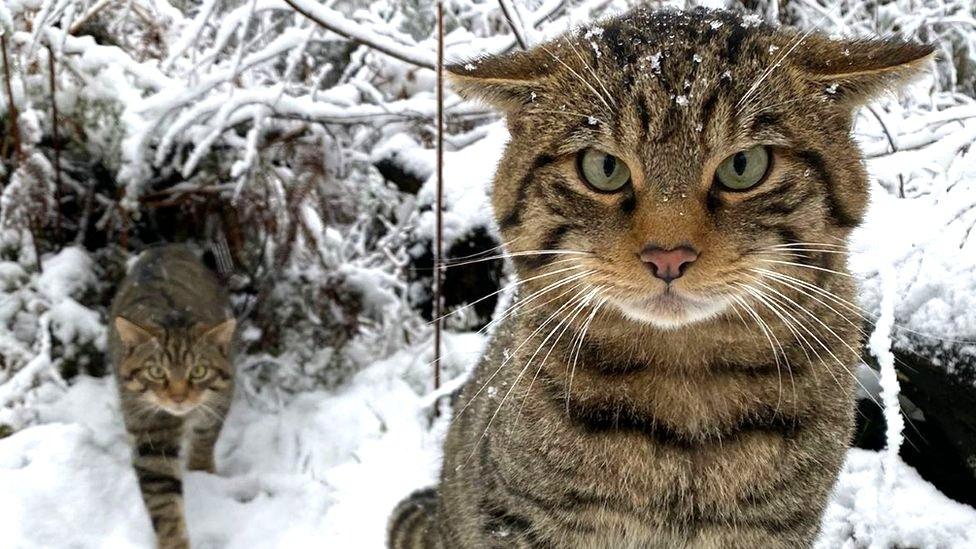
- Published19 May 2022
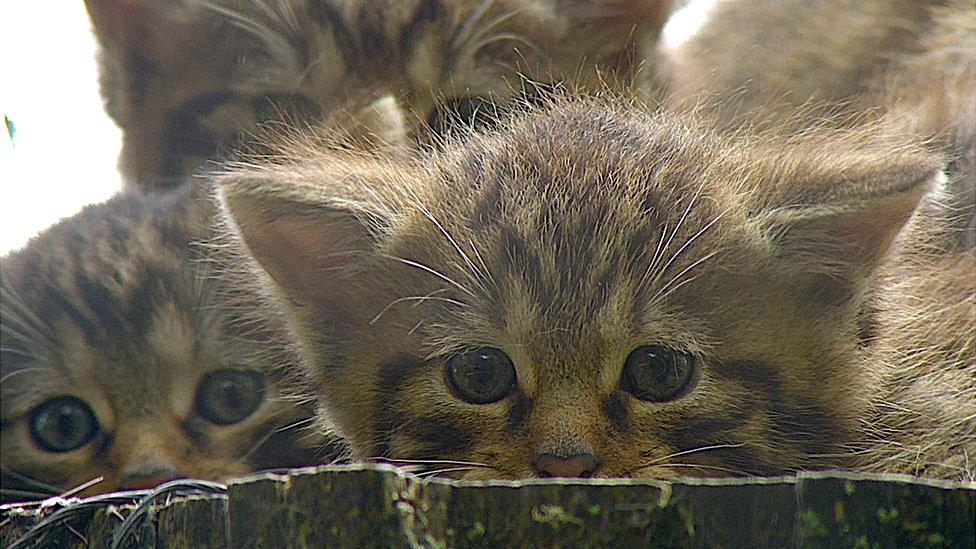
- Published20 December 2018
